AMD Threadripper 3990X Review: A 64-Core Multithreaded Beast Unleashed
When the Windows installation was complete, we installed all of the drivers necessary for our components, disabled Auto-Updating and Windows Defender, and installed all of our benchmarking software. When that process was done, we performed a disk clean-up, cleared any temp and prefetch data, and optimized all of the SSDs using Windows' built-in utility. Finally, we enabled Windows Focus Assist to minimize any potential interruptions and let the systems reach an idle state before invoking any tests.
|
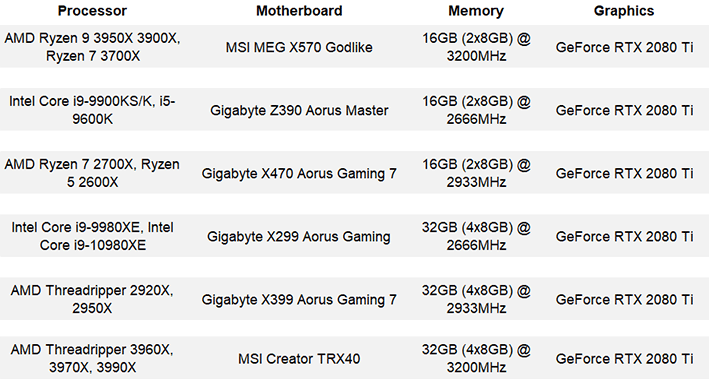
|
We began our testing with the latest version of SiSoftware's SANDRA 2020, the System ANalyzer, Diagnostic and Reporting Assistant. We ran four of the built-in sub-system tests that partially comprise the suite with the Core i9-9900KS (CPU Arithmetic, Multimedia, Cache and Memory, and Memory Bandwidth). All of the scores reported below were taken with the 3rd Gen Ryzen Threadripper processors running at default settings, with 32GB of DDR4 RAM running at 3,200MHz, in quad-channel mode, on the MSI Creator TRX40 motherboard.
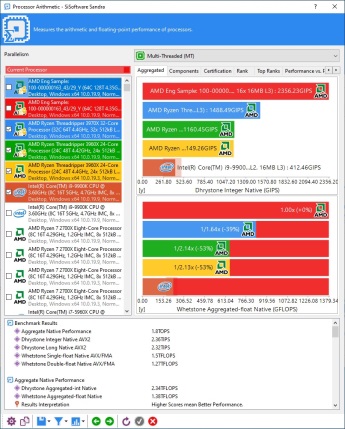
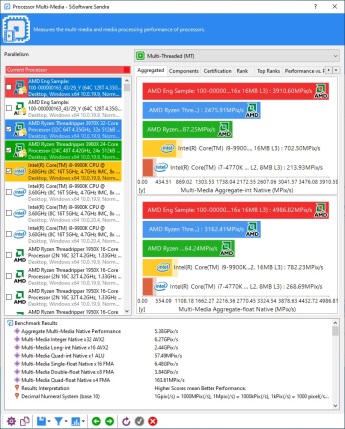
| AMD Ryzen Threadripper 3990X Processor Arithmetic |
AMD Ryzen Threadripper 3990X Multi-Media |
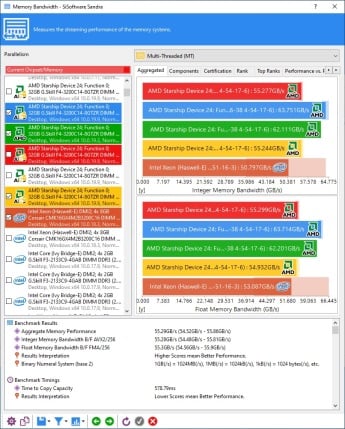
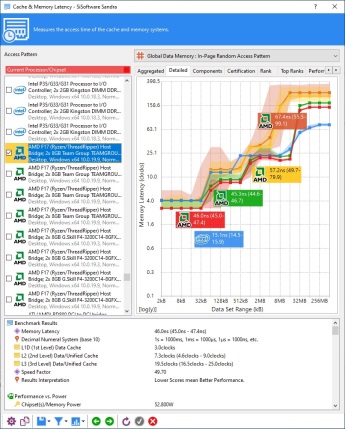
| AMD Ryzen Threadripper 3990X Memory Bandwidth |
AMD Ryzen Threadripper 3990X Cache And Memory |
SANDRA revealed some interesting things with the Threadripper 3990X. First and foremost are the huge Processor Arithmetic and Multi-Media scores. These two tests are multi-threaded, and can leverage the immense resources available in the CPU. As a result, the Threadripper 3990X blows past even the 32-core Threadripper 3970X by a wide margin. In terms of cache and memory bandwidth, however, the Threadripper 3990X trails its lower core-count counterparts by a few percentage points. Whereas the Threadripper 3970X offered up over 63GB/s of peak memory bandwidth, the 3990X barely broke 55GB/s, with the exact same memory configuration. The additional contention for bandwidth over the Infinity Fabric links connecting all of the chiplets to the IO die is a potential reason for the 3990X's reduced memory bandwidth.
|
In the GeekBench test, we're stressing only the CPU cores in a system (not graphics or GPU architecture), with both single and multi-threaded workloads. The tests are comprised of encryption processing, image compression, HTML5 parsing, physics calculations and other general purpose compute processing workloads.
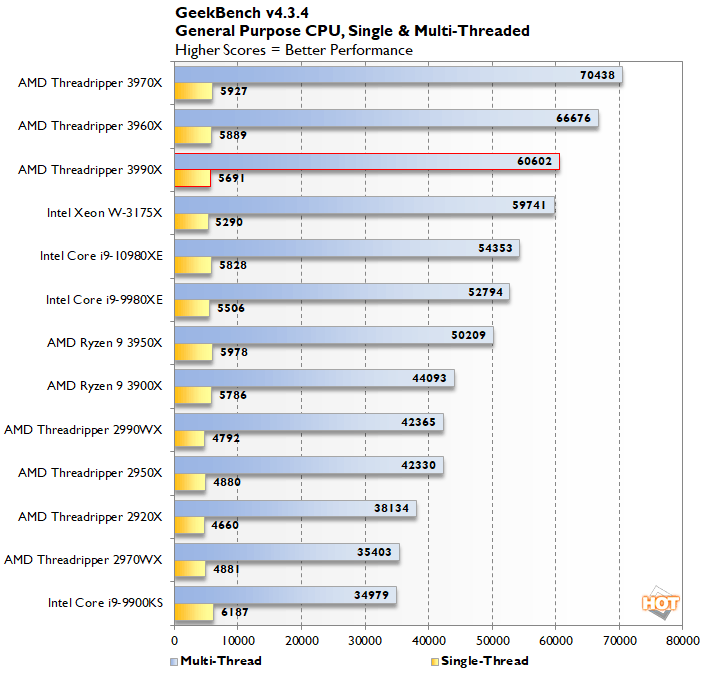
The version of Geekbench we used for testing doesn't seem to scale past 64-threads. As such, the Threadripper 3990X's additional resources are left idle, and its lower boost clocks and memory bandwidth push it down a couple of rungs, to where it slots in just behind the Threadripper 3960X.
|
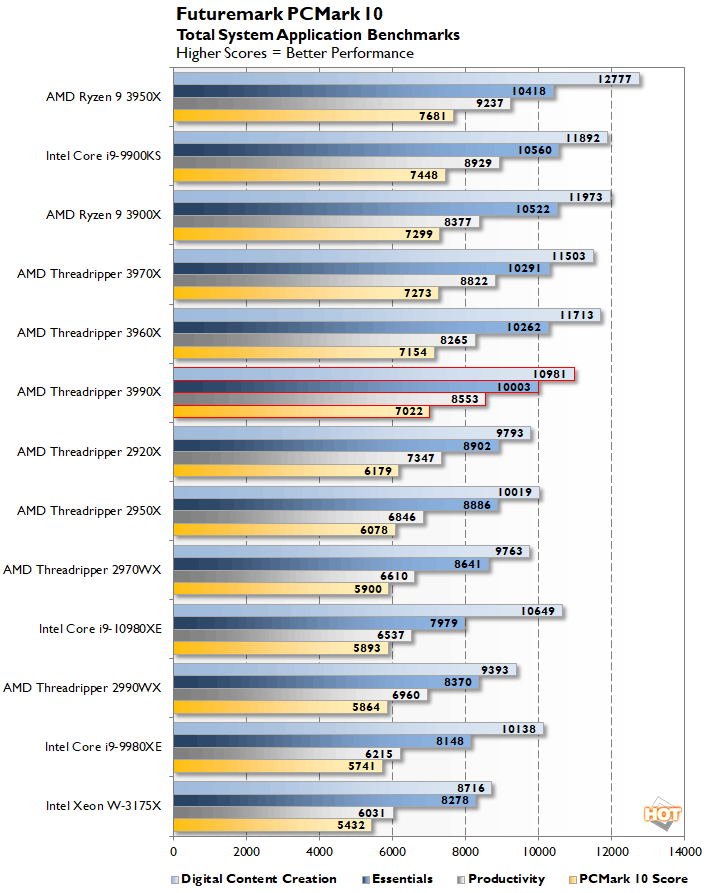
PCMark 10 doesn't use all of the resources available in the Threadripper 3990X either. Here, AMD's new flagship HEDT processor still manages to outpace the previous-gen Threadrippers and all of Intel's HEDT processors, though. Regardless, it's the higher-clocked, mainstream platforms that take all of the top spots in this benchmark.
With more taxing, heavily-threaded workloads, however, the pecking order changes dramatically...we're getting there...







